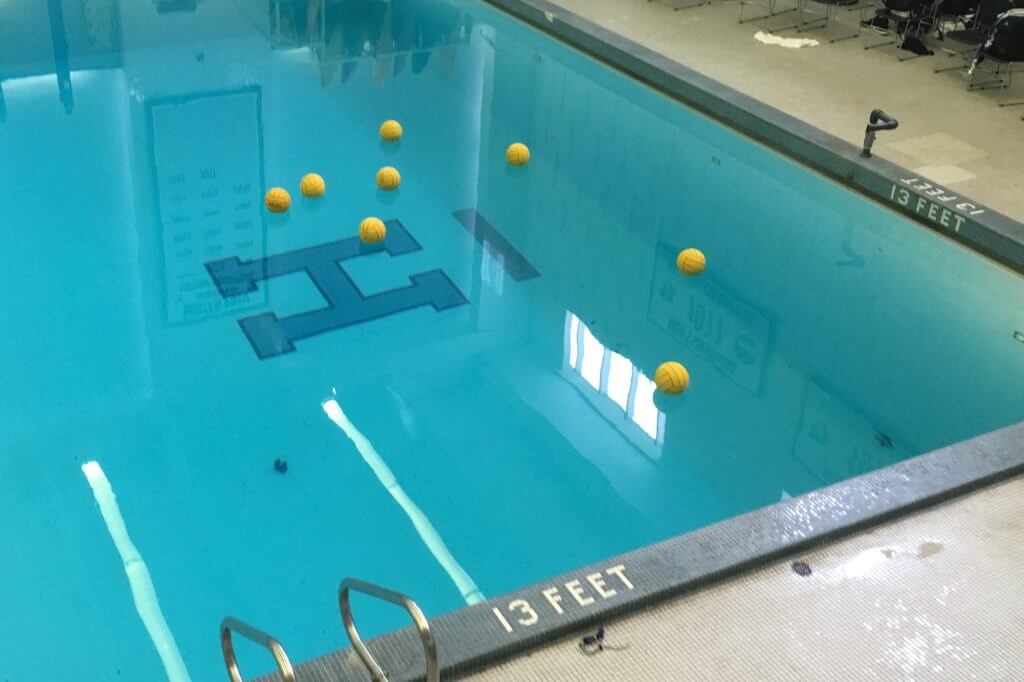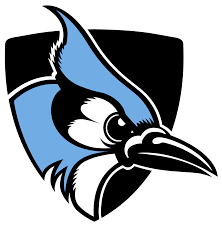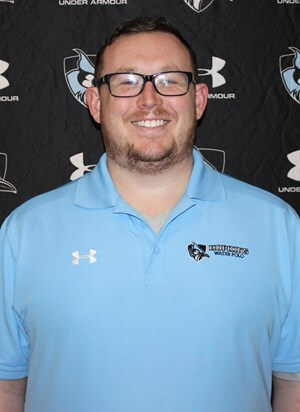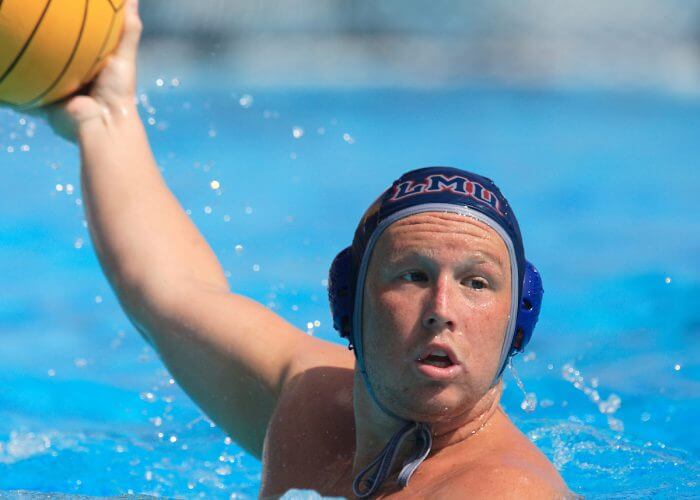Five Questions for Max Schlegel, Johns Hopkins Men’s Water Polo Coach

Almost a year ago, a seismic change occurred in Eastern collegiate polo; after 27 seasons leading The Johns Hopkins men’s water polo program, Edward “Ted” Bresnahan stepped down. It happened mid-season, leaving Bresnahan’s assistant, Max Schlegel, to step in and lead a DIII program that historically has been one of the nation’s best.
 It was entirely fitting that Schlegel succeeded his mentor of the past two years. After more than 400 wins during the Bresnahan era, it was essential that the coaching reigns be turned over to a coach who fully appreciates the distinct character of Hopkins polo.
It was entirely fitting that Schlegel succeeded his mentor of the past two years. After more than 400 wins during the Bresnahan era, it was essential that the coaching reigns be turned over to a coach who fully appreciates the distinct character of Hopkins polo.
A native of Annapolis, Schlegel spent four years at Loyola Marymount in California, including the last three when the Lions were on a streak of four-straight NCAA tournament appearances (2007-10). After graduation he returned to Maryland and coached water polo at Calvert Hall College High School in Baltimore from 2013 – 2015 before joining Hopkins in 2016.
[Ted Bresnahan, Hopkins Water Polo Coach, Steps Down after 27 Years]
Since the “interim” tag was removed from his head coach title last February, Schlegel has been preparing the Blue Jays for a new era, including bringing in former Hopkins great John Wilson as his assistant. Before his team takes the water Saturday against Austin College at the Navy Invitational, Schlegel responded to emailed questions about his new position.
– Let’s face it; you’ve got some pretty big shoes to fill! How is it to take over from Ted Bresnahan, who is one of the legendary coaches in the history of East Coast men’s water polo?
It is obviously a massive under taking to follow Coach Bresnahan. He has over 25 years of commitment and 400 wins for the program. He has set high marks for me to reach in all categories of the sport—including being an advocate for all his players in and out of the pool.

Max Schlegel. Photo Courtesy: Hopkins Athletics
I don’t believe I can fill his shoes; I have to get my own pair make my own mark on this program. My coaches and mentors are Mike Schofield, John Loughran, and Ted himself. I think that group of historic coaches, among other coaches I have had in camps and select teams have prepared me for my first Collegiate Head coaching position.
– You’ve been around the program since 2016, and have played a big role in how the Blue Jays have developed over that time. What is the outlook for Hopkins polo in what is sure to be a very competitive Mid-Atlantic Water Polo Conference?
The Mid-Atlantic Conference is indeed very competitive—all you have to do is look at what George Washington has done the past two years. The other programs are also very competitive and multiple schools have been ranked in the top 20 the last few years.
We are a DIII school by name but we want to compete with the best and push ourselves and the program to the limit of our talent. We will always be striving to be in the top four of the Mid Atlantic.
[2019 Swimming World Men’s Water Polo Previews: Mid-Atlantic Water Polo Conference-East]
– What makes Hopkins polo so distinctive is that, as a DIII program in urban Baltimore, it’s able to draw some of the country’s best players.
First, for most people, Johns Hopkins is one of the best educational institutes in the country. I push that to my players and recruits. You are here to get one of the best degrees possible. Water polo is second to that. I think that resonates with the type of players I want and that will be successful here. They have a passion to be exceptional in all aspects of life.

Photo Courtesy: LMU Athletics
Second, while there are some negatives to Baltimore it is called Charm City for a reason. When people come here and see the gorgeous campus and the city around it, such as the inner harbor and Camden Yards, they fall in love.
– You know the regional polo scene in the East quite well; what are the prospects for local players—including athletes from Calvert Hall and other Baltimore prep schools—to find their way onto the Blue Jays roster?
For me if you are good at water polo and meet the high standards in the classroom that JHU sets, I want you on the team. We have two sophomores and a freshman on the team who didn’t attended high school in California. They will all be a big part of the team this year.
I want to be a place where your play speaks more than what program you came from. I think you will see that in the future.
– This year, with the help of USA Water Polo, the CWPA and SCIAC, there will be a DIII Men’s National Championship. Hopkins has consistently been one of the top DIII schools in the country, and is likely to be a part of this first-ever national title match, but, you’re playing in a conference that also offers a path to the DI national championship. How do you choose?
I am very thankful for the opportunity USA Water Polo and both conferences are giving us. I want to take full advantage of that. I think if the time came where we had the ability to go to both I would have to look into what would be the best for my players, the team, the school, and the future of the program.



